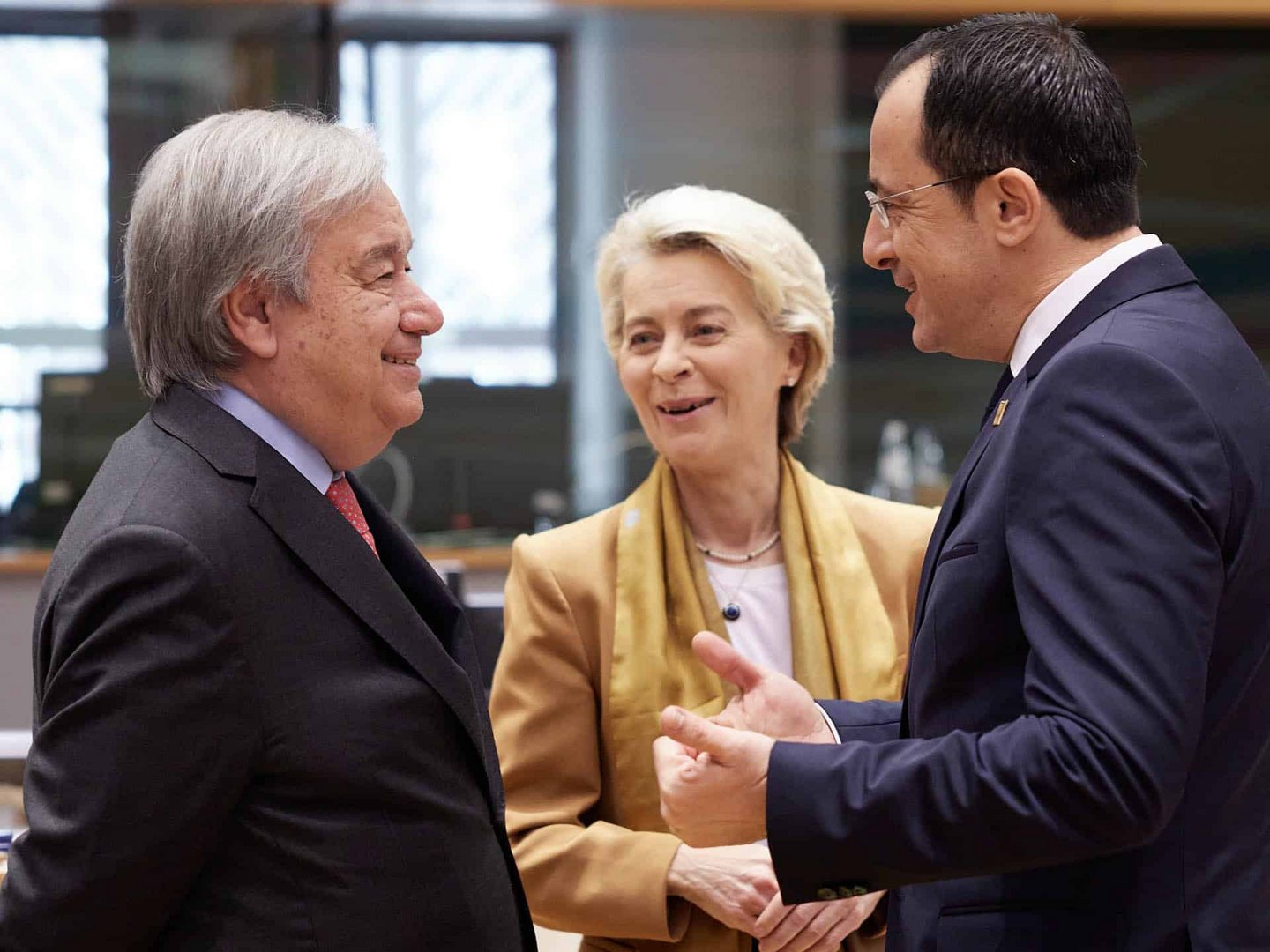Towards the end of the Christofias presidency, with Cyprus excluded from the markets, state coffers almost empty and the banks on life support, there were attempts by the EU and the ECB to agree an assistance programme with the government, but the president showed no interest in engaging. He did not want to leave the office, leaving behind him austerity measures.
The result was that by September 2012, the EU concluded Demetris Christofias was untrustworthy and lacked the will to introduce the tough measures needed to bring the economy back from the edge, so they decided to wait for the new president – someone they could do business with – to assume office.
A similar script was followed in the case of Nicos Anastasiades and the Cyprus problem talks. After he walked out of Crans Montana, the UN and the EU, which had pulled out all the stops in order to secure a settlement, gave up on him, concluding from his actions that he was insincere and totally untrustworthy. This was why for the duration of his second term, nobody undertook any initiative for a resumption of the peace process.
The UN Secretary-General, Antonio Guterres, who personally witnessed Anastasiades’ total lack of political will for a settlement gave up on the Cyprus problem. He appointed a special envoy, Jane Holl Lute, who visited the island from time to time and spoke to the two sides, but this was just a gesture to acknowledge the problem existed. Nothing ever came of her visits. It is indicative of New York’s attitude towards Anastasiades that the visit to the island of the Under Secretary-General Rosemary DiCarlo, although agreed with his government, took place once the new president was in office.
The EU also gave up on Cyprus, deciding any effort would be pointless while Anastasiades was president. This was evident by the complete change of attitude of top EU officials towards the new president Nikos Christodoulides who was in Brussels last week. This was not to suggest Anastasiades was treated badly by anyone on his visits to Brussels, although he had fallen out with the former president of the European Commission Jean-Claude Juncker, but nobody showed an inclination to talk about the Cyprus problem with him.
There was no such problem for Christodoulides’ visit, during which the main issue he brought up at all his meetings was the resumption of the peace process, underlining the need for a settlement and presenting his proposal for a more active and prominent role for the EU. Although his proposal was not adopted, his intentions were taken at face value and the general impression was that Brussels was prepared to engage with the new president and support efforts to kick-start the peace process.
It was clear from comments made by Christdoulides himself that the more active and prominent role he outlined for the EU, would not take the form he had envisaged in his election campaign and repeated before his trip, but it was also clear that Brussels would have some involvement. At his meetings with the President of the Commission, Ursula von der Leyen, the President of the European Council, Charles Michel, and President of the European Parliament Roberta Metsola, he said it was agreed that they would try to utilise the time leading to the Turkish presidential elections on May 14, to prepare the ground with aim of the process resuming soon after.
To his credit, Christodoulides adapted his narrative so it would be in line with what he heard in Brussels. The EU would not take a leading role in the talks as he had suggested, but it could take a leading role in efforts to break the deadlock so that talks could resume. It does not matter if a political personality from the EU is not appointed as a political envoy on the Cyprus issue, as Christodoulides wished. What really mattered was that Brussels’ interest in the Cyprus problem had been revived and there is a commitment, on its part, to use its influence in Ankara to try to break the deadlock.
The Brussels visit was a success for the new president. He appears to have convinced everyone he met of his sincerity in pursuing a Cyprus settlement and has also secured their support. The goodwill shown to him raises hopes that after the presidential elections in Turkey there could be some movement on the Cyprus problem. It is now up to him prove that the goodwill and trust shown to him is justified.







Click here to change your cookie preferences